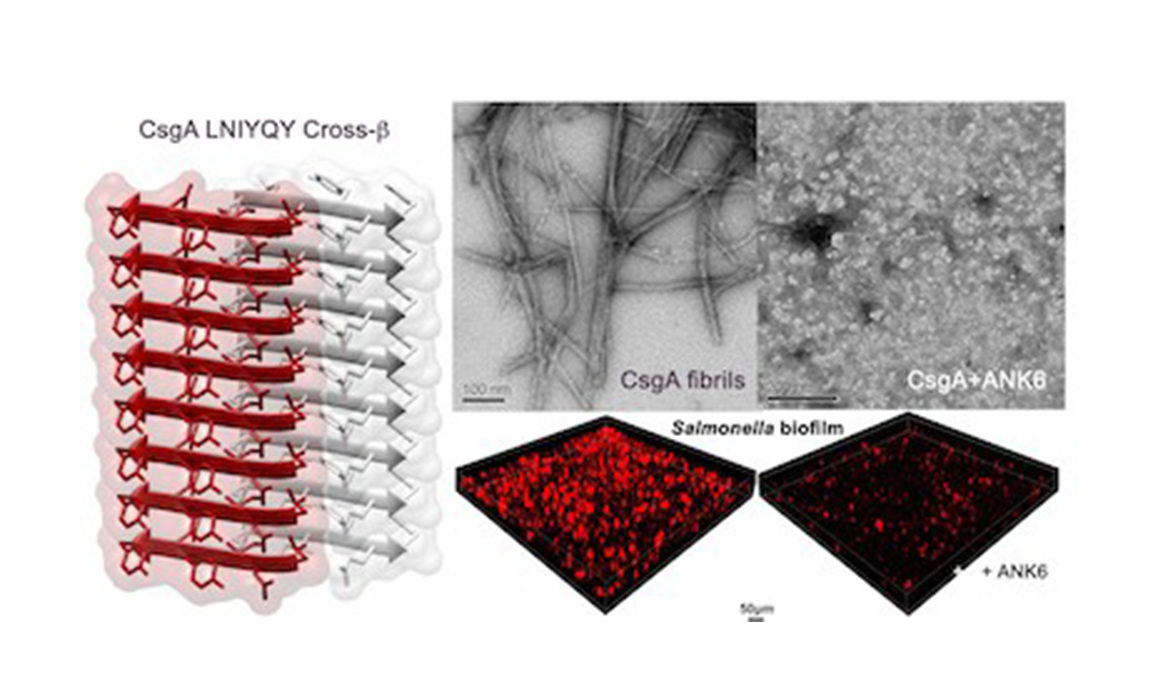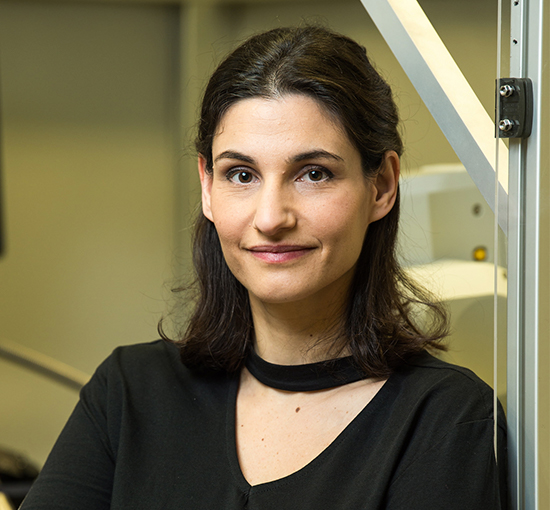Associate Professor Meytal Landau, doctoral student Nir Salinas, and a research team from the Technion Faculty of Biology may have found a way to make salmonella bacterial infections less aggressive. The discovery could lead to the development of innovative treatments to inhibit antibiotic-resistant bacteria.
Years of Research Lead to a Big Discovery
In 2017, Prof. Landau’s team discovered that Staphylococcus aureus — an especially virulent bacterium that attacks the T cells of the immune system — does so in part by releasing toxic fibrils.
Then, in 2018, Salinas and his team discovered that proteins from the same family as those toxic fibrils produce stable structures that can survive under extremely difficult conditions, protecting the bacteria.
Using findings from both studies, the researchers recently announced that by interfering with the fibrils produced by E. coli and salmonella, they can hamper the bacteria’s defense mechanisms and prevent them from attaching to tissues and medical devices. This could be the key to fighting antibiotic-resistant bacteria.
Attacking the Biofilm
The process does not harm the bacteria directly. Instead, it damages the biofilm, a layer of microorganisms that protect bacteria and allow them to attach to tissues, medical devices, pipes, and more.
The researchers believe that attacking the biofilm instead of the bacteria will reduce the risk of developing resistance compared with antibiotics that kill the bacteria and thereby induce defense mechanisms against the drug, making the bacteria more resilient, virulent, and dangerous.
This is a tremendous breakthrough, as Staphylococcus aureus and E. coli are the cause of a growing number of infections in hospitals and communities. Yet because they’re resistant to antibiotics, it has been nearly impossible to combat them.
Getting Out of the Lab, Faster
Knowing how critical it is to get this research into the real world so it can start saving lives, the research team used substances originally developed to treat Alzheimer’s disease for their research.
Repurposing materials that have already undergone clinical trials for treating Alzheimer’s leads to a shorter, less expensive approval process than in the case of a new compound. That means critical, lifesaving research can get in the hands of people who need it even faster.

